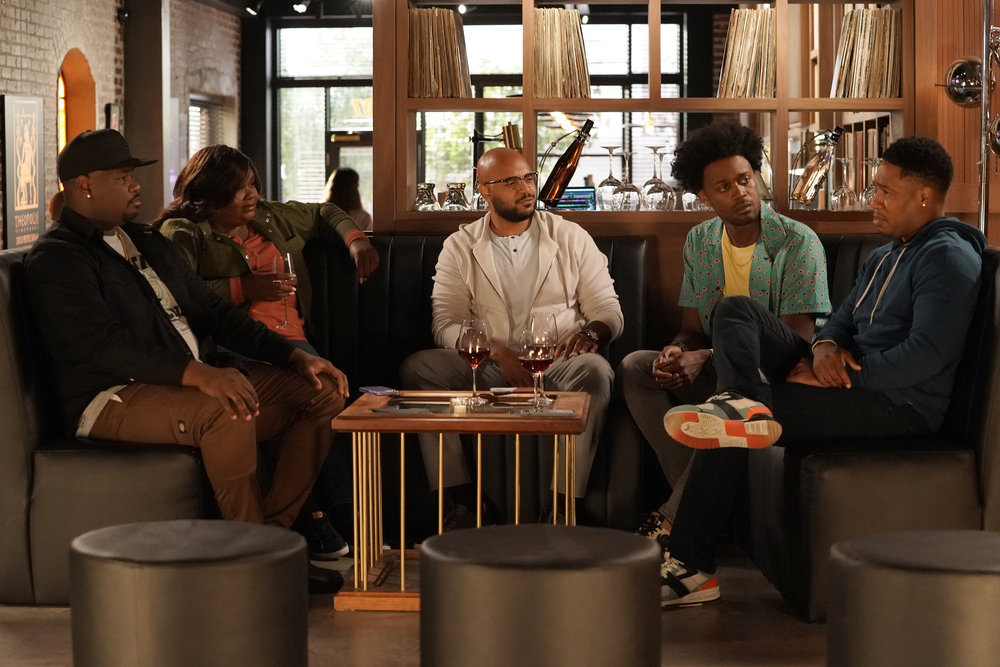
Historically, the Black experience has been invalidated by the inundating stressors of systemic injustices across our “beautiful” country. And due to this unfair treatment, Black people have often been improperly stereotyped as the “angry Black man” or “the complicated Black woman,” you know, those stereotypes. And unfortunately, these ignominious labels have followed us from the confines of our reality to the everyday hustle and bustle of those representing us on the small screen, especially in sitcoms. Black people are often cast as stereotypical characters who live out a certain toxic fantasy’s unfair bias in this predominantly white space. In contrast, the white cast members are given emotional extensions of an authentic human experience that resonates with a real human being. Without much Black control behind the scenes in Hollywood or, in a broader sense, even a Black voice behind legislation/policies in Government, Black culture is often made a mockery of as we are shown acting like caricatures of what white America views the Black experience to be—whether subconsciously or consciously in their decisions.
Fortunately, though, we have been recently blessed with a multitude of Black tv shows reclaiming Blackness and how it’s perceived on tv. These shows are equipped with Black creative control and direction, executive producers, and writers that can inject an authentic lived Black experience into the metaphorical vein of primetime television. The result? Well, the most recent product has been an ambitious show called Grand Crew—a brand new Black sitcom from the creative minds of Phil Augusta Jackson (writer, producer, and director on Brooklyn Nine-Nine) and Dan Goor (creator of Brooklyn Nine-Nine). With Grand Crew, we get a look into what could be a promising new hit for NBC and what could be one of the most authentic depictions of the Black experience in a sitcom in some time. Following in the footsteps of hit shows like HBO’s Insecure and FX’s Atlanta, Grand Crew thrives on writing honest Black characters in ways that resonate more with Black audiences tuning in and less with the idea of white acceptance: the characters are complex human beings that offer a multidimensional glimpse into what it means to be unapologetically Black in real-time in a relationship, a friendship, in love, in hate, and simply existing as a person who maybe loves wine.

Starring Nicole Byer, Justin Cunningham, Aaron Jennings, Echo Kellum, Grasie Mercedes, and Carl Tart, the show focuses on a group of young professionals trying to make sense of the world around them while savoring the simple pleasures of wine and the art of friendship. The characters cry, laugh, love, and feel just as much as you think a human being would as they navigate the loss of love and rediscover what it means to be surrounded by people who love you unconditionally for all that you’re worth.
As I watched this show, I couldn’t help but feel like this was a message to Black viewers and the system at hand. It was a message that looked to continue what other Black shows have done recently and in the past ten years, challenging the notion that Black characters can’t exist on screen without a stereotype attached to the script. Grand Crew makes it a point to set the record straight from the very moment the first episode begins with a foreword from legendary comedian, actor, and singer Garrett Morris. In a beautifully constructed and performed bit of dialogue, Morris makes it apparent that these characters will not be one-dimensional and that Black men on and off-screen “got layers y’all.” Morris asserts that Black men cry, laugh, love, and are sensitive just like everybody else, and Grand Crew sets forth to double down on these “bold” statements.

Flawlessly teetering the line of comedy and drama while also providing us with the melodramatics of what appears to be the “main character” of the bunch, Noah—your lovable hopeless romantic (that, now that I think about it, reminds me of myself during my high school years)—Grand Crew sets the stage for an exploration of self and the many shortcomings we often lose sight of when placing our happiness within someone else. Noah, played by Echo Kellum, is a great character to navigate these perils of the dating scene while Black, though he comes off as rather cringe at times, Noah is one of the clearest examples of Morris’ opening statement. Showcasing vulnerability and sensitivity in the face of love, loss, and heartbreak, Noah’s character is a walking protest against the limitations of stereotypical Black representation. I love it.
There is something rather special about seeing yourself represented on the small or big screen in a way that you can relate to and not feel ashamed of. Grand Crew offers refreshing insight into what it means to showcase an authentic Black experience riddled with emotions and feelings that the Black community can look to and say, “this character is just like me; it’s okay to show emotion.” It’s truly a beautiful thing to watch a show that can validate your human experience and fight against historically unfair representations of your people simply by creating characters that function like you and your homies; it’s stunning what representation can do behind and in front of the camera when given a fair fighting chance—what a concept. Grand Crew is a show not concerned with the acceptance of white audiences and unbothered by the white gaze; it’s a show that reclaims Blackness as it is perceived on television with a promising cast of young Black actors and actresses set on giving us their authentic selves. An authenticity that will only get better over time, like fine wine, I’m sure of it. A Votre Sante (to your health).



